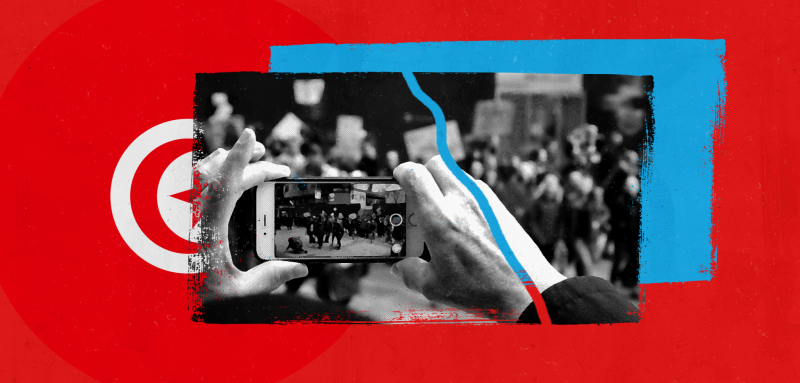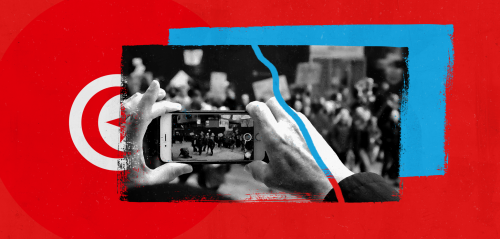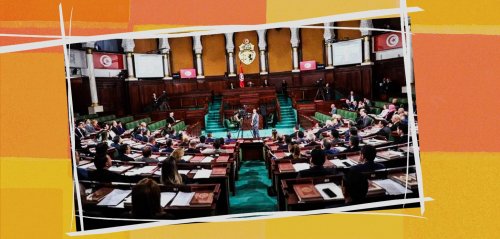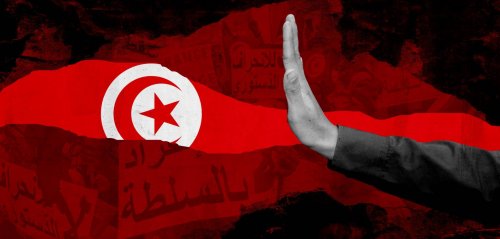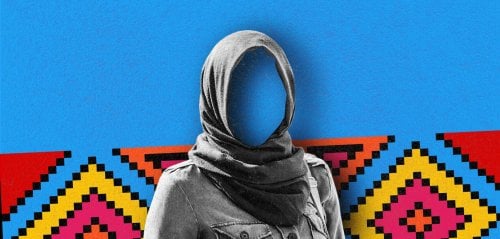Political and human rights forces in Tunisia have vehemently voiced their opposition to the Tunisian government's recent move towards instituting pre-censorship on online content and pursuing legal action against social media activists, subjecting them to legal condemnation for their viewpoints and opinions. This move is perceived as yet another endeavor to tighten the reins on freedom of expression.
Activists have raised the alarm regarding the potential resurgence of the "internet police", a local term historically associated with the era of the late President Zine El Abidine Ben Ali. This term was used to describe the practice of blocking websites and online accounts that contradicted his policies. Concerns have been rekindled as the Tunisian Ministry of Justice initiated legal proceedings against activists under accusations of "spreading false rumors".
Initiating judicial proceedings and imposing penalties on activists
Tunisia's Ministries of Justice, Interior, and Communication Technologies have commenced legal proceedings aimed at uncovering the identities of individuals behind and utilizing pages on social media platforms that, according to them, "pose a threat to public security and the interests of the Tunisian state, seeking to tarnish its image."
The three ministries have firmly asserted their commitment to revealing "the identities of page and account owners, as well as online groups that deliberately exploit these platforms to generate, propagate, disseminate, circulate, or formulate fictitious news, statements, or rumors, with the intent to defame, besmirch reputations, infringe upon the rights of others, jeopardize public security and social harmony, and undermine the interests of the Tunisian state, as well as tarnish its symbols."
They have clarified that "anyone involved in contributing to or sharing content from a site or page under judicial or criminal investigation, regardless of the method employed, whether within or outside Tunisian borders, exposes themselves to the same legal consequences."
Activists are cautioning against the dangerous revival of the "internet police" after the Tunisian Ministry of Justice initiated legal proceedings against activists under accusations of "spreading false rumors"
Additionally, they have indicated that "lists of pages and online groups subject to investigation will be regularly published on official platforms", adding that this approach "falls within the framework of countering crimes linked to networking sites."
This decision coincides with Tunisia navigating through a significant political crisis stemming from the president's unilateral decision-making approach and his refusal to engage in dialogue with political and labor factions within the nation. This crisis is compounded by escalating economic and social challenges, accompanied by shortages of essential commodities such as bread, flour, and oil in the market.
President Kais Saied of Tunisia lends his support to this decision, urging relevant authorities to "collaborate with a number of nations to curtail the uncontrolled disorder prevalent on social media platforms."
Saied unequivocally emphasizes that "threats of violence, defamation of character, propagation of false rumors, insults, and verbal abuse have no bearing on the principles of independent thought and expression. There will be no retreat in confronting such lawless behavior."
He asserts that "defamation campaigns and threats frequently target specific individuals or entities, explicitly mentioning their names and job positions. This synchronized pattern underscores premeditated planning and orchestrated efforts executed by groups seeking to sow chaos and disrupt stability."
Declaring war on freedom of expression
The adoption of this policy has sparked considerable debate among users of social media platforms, human rights organizations, and political parties. Some view it as a calculated measure aimed at stifling freedom of expression and silencing political opponents, along with any perspectives that challenge the president's policies. On the other hand, there are those who view this decision favorably, considering it a pivotal step in safeguarding the nation's cybersecurity and combating the spread of misinformation.
The opposition's National Salvation Front has issued a statement firmly denouncing the recent direction taken by the three ministries. They perceive it as nothing short of a "declaration of war on freedom of speech and expression," aimed at stifling individuals and bloggers who have been raising their voices in criticism and expressing the growing popular discontent amidst the deepening financial and social crisis."
The National Salvation Front has characterized this move as a "desperate attempt after the notorious Decree No. 54 failed to achieve this goal, despite the severe penalties it imposed to curb freedom of expression, including up to a decade in prison and hefty fines amounting to one hundred thousand dinars."
The National Salvation Front's statement cautioned against the adoption of a "heavy-handed policy that has transformed the nation into a sudden dictatorship, in an attempt to forge ahead in a direction that exposes the country to a tangible risk of an imminent collapse."
The adoption of this policy has sparked considerable debate among social media platform users, with human rights organizations and political parties viewing it as a calculated measure aimed at stifling freedom of expression and silencing political opponents
In light of these circumstances, the National Salvation Front urged "all active entities within the nation to rally together and advocate for the safeguarding of both individual and public freedoms, in order to rescue Tunisia from the lurking perils of disintegration and collapse, and open a path for reform that ensures stability, an economic resurgence, and social advancement."
These unfolding events coincide with the current regime facing accusations of encroaching on freedom of expression, enacting restrictive and punitive decrees and laws aimed at curbing the activities of journalists, bloggers, and civil society organizations in Tunisia.
It's worth noting that on September 13, 2022, the Tunisian President issued Decree No. 54 in an effort to combat cybercrimes linked to information and communication systems.
According to this decree, any individual "intentionally utilizing communication networks and information systems to fabricate, circulate, disseminate, or transmit false information or rumors" can face up to five years of imprisonment and a fine of fifty thousand dinars. This penalty escalates if the "false information" is targeting state officials.
Amnesty International has highlighted that since the decree's issuance, no less than thirteen individuals – comprising journalists, political opposition figures, lawyers, human rights defenders, and activists – have been subjected to either police or judicial inquiries, potentially leading to legal consequences.
A targeted measure aimed at suppressing opposition
The journalist and human rights activist, Ziad Al-Hani, acknowledges the use of social media platforms by thousands of individuals for purposes of slander, defamation, character assassination, and spreading rumors. However, he asserts that addressing these practices should be approached within the framework of legal proceedings.
To date, the existing regime has been employing all available decrees and laws to monitor, track down, and intimidate its critics and opponents, particularly directing its efforts at political opposition figures
In a conversation with Raseef22, Al-Hani further expounds, stating that "the primary concern is not whether these individuals are being monitored or not, but rather lies in the lack of implementation of this decision and other decrees, laws, and resolutions across the board, without any exceptions."
He goes on to explain, "To date, the current regime has utilized all available decrees and laws to monitor and intimidate its critics and opponents, particularly directing its efforts at political opposition figures. A prime example of this is Decree 54, which has been used to exclusively target the President's adversaries."
Ziad Al-Hani asserts that political, trade union, and human rights figures who oppose the President's policies encounter daily threats, slander, and insults from individuals and networks, all under the protection of authorities and the Ministry of Justice. Despite filing reports and official complaints against them, they have not faced prosecution or investigations, according to his statements.
Continuing, he notes, "Thus, this measure solely targets pages opposing President Saied, in an endeavor to further constrain freedoms and suppress voices." He emphasizes that the current authority is under obligation to enforce laws and government decisions uniformly, and not in a selective manner.
Just for protection?
Despite the widespread rejection of the authorities' approach towards imposing control on social media platforms and infringing upon freedom of expression, proponents of the Tunisian President endorse this approach, viewing it as a "critical step towards safeguarding the nation's cybersecurity."
The spokesperson for the People's Movement, Mohsen Al-Nabti, believes that the decision to initiate legal proceedings against individuals operating specific social media pages is a mere preventive measure, aimed at upholding the country's cyber security.
Al-Nabti adds that this precautionary measure won't encompass all social ,edia pages but will rather target a limited number that has been substantiated, through evidence, to have transgressed the law by inciting discord and propagating false information.
Supporters of the Tunisian President regard this direction as a sensible move to protect the country's security.
Expanding on this perspective, he stated, "Countries worldwide are increasingly focused on combating misinformation, disinformation, and cyber intrusions to preserve their national security. Tunisia has likewise opted to align itself with this trajectory."
Al-Nabti recalls the years spanning from 2014 to 2019, a period marked by Tunisia's parliamentary and presidential elections, noting, "During the elections, financially-backed Facebook pages operating from abroad played a role in influencing the election results and molding public sentiment."
He elaborates, "Investigations at that juncture revealed that certain political parties, including the Ennahda Movement, engaged international firms to manipulate public opinion and influence election results, which detrimentally affected Tunisia's political landscape."
Al-Nabti goes on to underscore the obligation for his nation to confront "cyber warfare" that targets it, while simultaneously preserving freedom of expression and journalistic integrity, and rigorously enforcing legislation by penalizing pages that exclusively endanger the country's national security.
Raseef22 is a not for profit entity. Our focus is on quality journalism. Every contribution to the NasRaseef membership goes directly towards journalism production. We stand independent, not accepting corporate sponsorships, sponsored content or political funding.
Support our mission to keep Raseef22 available to all readers by clicking here!
Interested in writing with us? Check our pitch process here!
